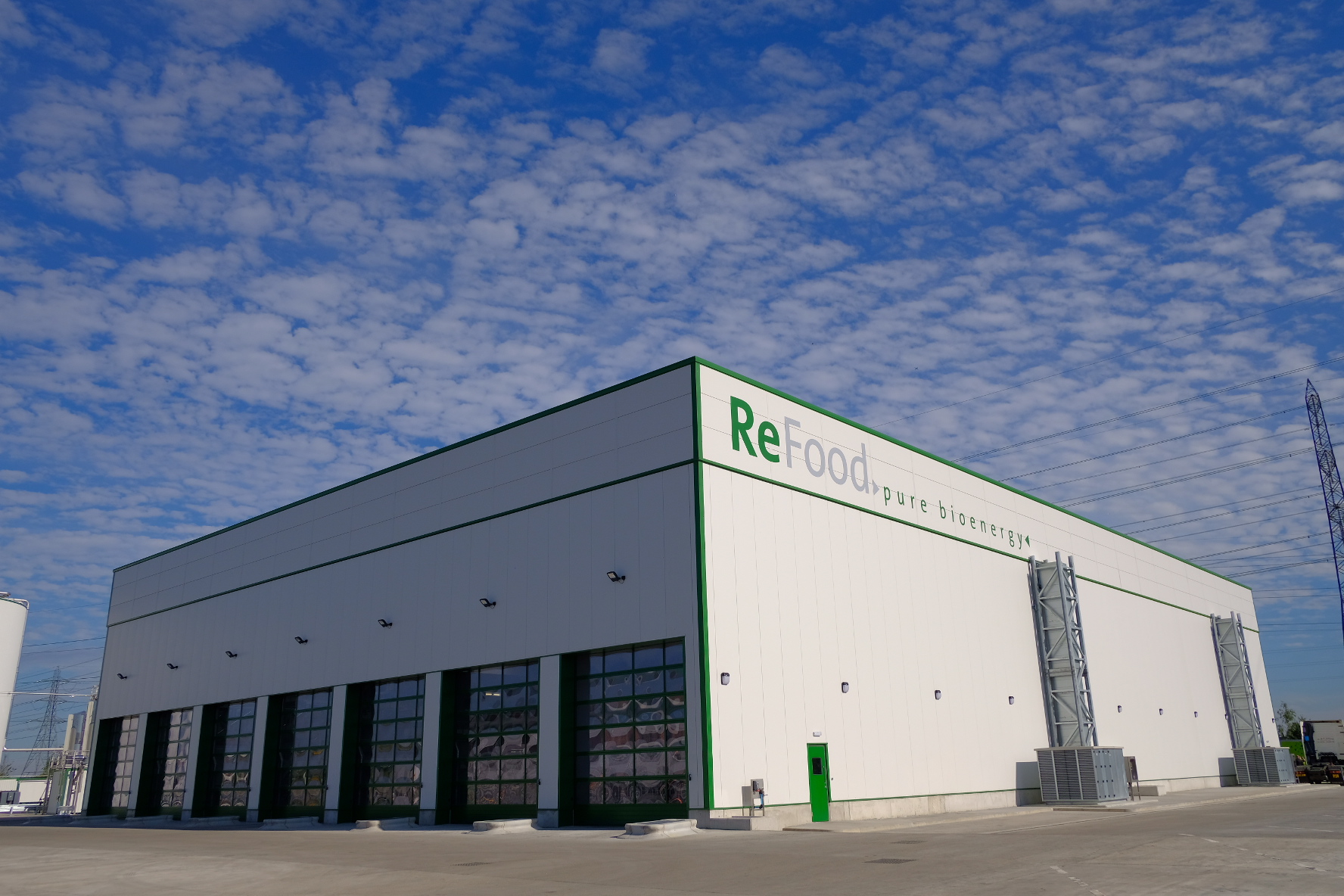Philip Simpson, commercial director at ReFood, discusses why introducing a national ban on food waste to landfill for businesses and households would deliver significant financial and environmental benefits.
Recent figures from the Department for Environment, Food and Rural Affairs (Defra) highlight that the UK’s anaerobic digestion (AD) capacity has risen to 6m tonnes per annum, nearby doubling over the past decade. This significant increase in our ability to recycle waste food is a big step in the right direction.
But while reaching this milestone rightly deserves recognition, the war is far from won. Indeed, while substantial capacity has been created, the landfilling of food waste is still far too commonplace in the UK. It would be a travesty to see new AD sites under-utilised, while valuable feedstock is simply thrown away.
AD is one of the great unsung heroes of recycling in the UK. Not only does the process divert food waste away from landfill, but it also offsets harmful greenhouse gases that would otherwise be released into our atmosphere. Not many people realise that methane, the gas released during the degradation of food waste, is more than 20 times more damaging to the planet than CO2. Preventing rotting food from ending up in overflowing landfill sites – and using it to generate green power – thus brings about a double benefit.
As a nation, we’ve made huge strides in reducing food waste, thanks to a multitude of initiatives devised to educate us about the role of portion sizes, the importance of leftovers, the role of packaging in reducing waste and the increasing prominence of redistribution schemes. We’ve also become better educated when it comes to food labelling, over-ordering, aesthetic standards, repurposing and storage.
However, with the best intentions in the world, there is still a significant amount of food waste that is still being unnecessarily sent straight to landfill. What’s more, it’s almost impossible to eliminate the unavoidable food waste fraction (shells, bones, gristle, etc.) – an estimated 30% of the c.9.5m tonnes of the UK’s food waste mountain.
This is an area of focus where our approach must change. At ReFood, we believe that a robust, national strategy to categorically ban food waste to landfill is the only solution to solving the issue. Yes, this would provide the necessary feedstock to fulfil expanding AD capacity, but more importantly it would deliver huge environmental benefits.
Two areas are key to the success of reform:
1. Commercial waste – All organisations that create food waste – restaurants, schools, hospitals, etc. – should be mandated to switch to commercial food waste recycling collections.
2. Household waste – Every home in the UK should have access to regular kerbside food waste recycling collections.
On the face of it, this seems an obvious and relatively simple course of action. Right now, we’re throwing away millions of tonnes of food waste that could, instead, be used to generate much-needed decentralised energy. It’s having a significant environmental impact and wasting valuable resource.
We have been lobbying the government to understand the implications of this issue for several years. The processing capacity and the supply chain network are in place. All we need is a commitment to change from those in power.
For businesses, implementing a commitment to food waste recycling is quick, easy and effective. Indeed, more companies than ever are switching away from landfill disposal voluntarily – it ticks sustainability boxes and can help to save c.50% on waste management costs.
When it comes to municipal kerbside collections, however, the challenge is more onerous.
Historically, decision making on refuse collection design was devolved to individual councils, in a bid to keep decision making local. However, in practice, this has created a confusing pattern of varying collection schemes across the UK with no economies of scale and plenty of confusion.
While green bins collect garden waste in one area, they’re used for household waste in another. While some councils take glass bottles, others don’t. Some collect food waste, most still don’t.
Previously, the government did talk encouragingly about its vision of rolling out food waste collections for all UK households. Frustratingly, the implementation of this legislation has slipped back time and time again, with no sign of change until at least 2023. The time to act on this promise is now. Separate food waste collections must be implemented as soon as possible.
Indeed, what’s needed is a clear, national strategy on kerbside collection that we can all support, in the knowledge that we’re diverting waste from landfill and creating renewable energy.
It’s all about political will and I believe now is the time to grasp the nettle and create a world-class food waste supply chain in the UK. The general public are crying out for leadership in the area of waste minimisation – it just takes leadership and vision from the government to turn this into a reality.
